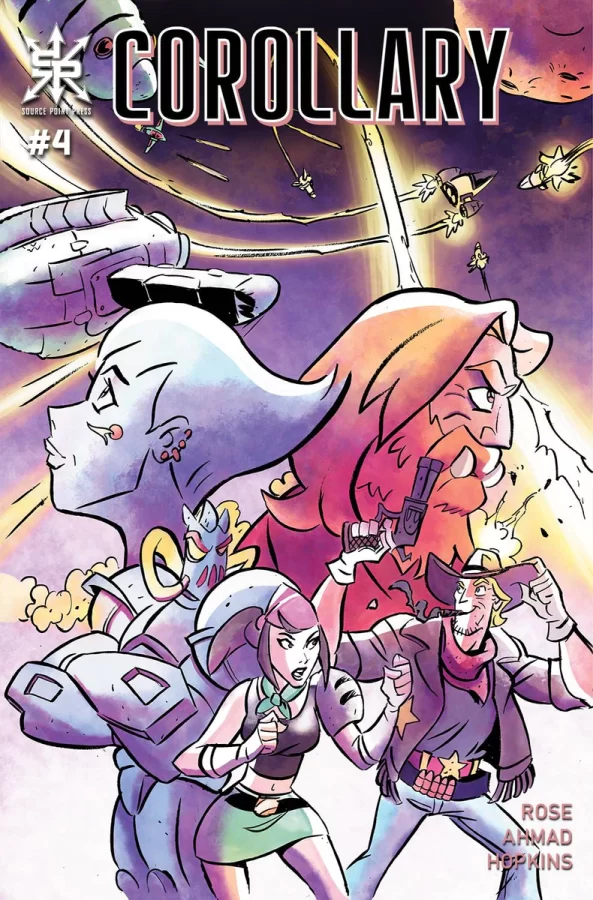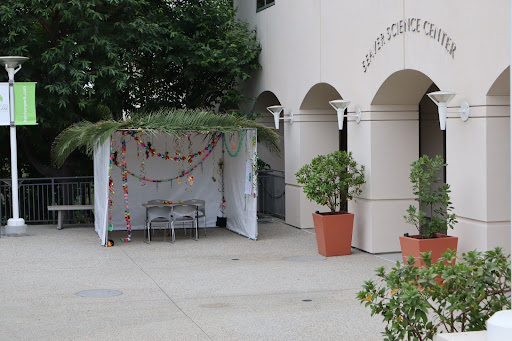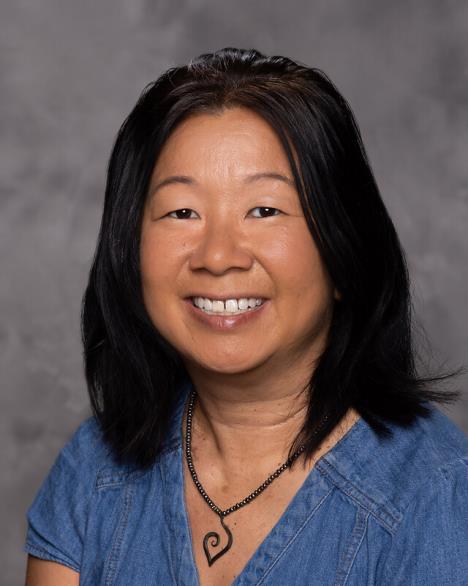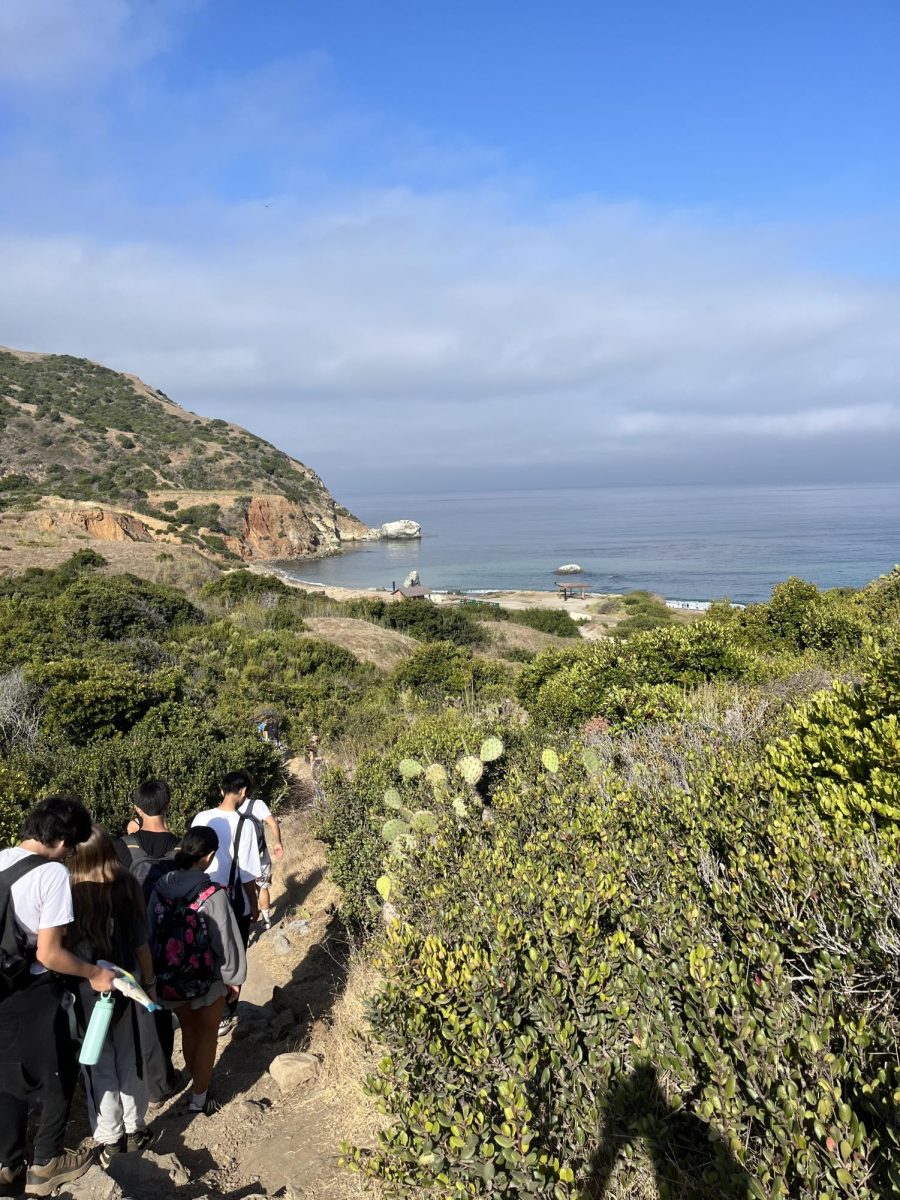“In a galaxy filled with twin moons, twin suns and twin planets, everything comes in twos. Even the people. And if your twin dies … so do you. This is the way it’s always been.”
Four years ago, Adam Rose, an English teacher at Harvard-Westlake (HW) middle school began the process of creating an original comic. Now, the fruits of his labor have been realized with “Corollary”, a four-issue science fiction comic. “Corollary” focuses on the adventures of Captain Andromeda as she navigates “a galaxy of twins” and deals with aliens curious to discover how she survived the death of a twin. We spoke to Rose about the process of creating Corollary and what the future looks like for him.
What inspired you to write Corollary?
I’ve loved comic books since I was 10. I’ve been collecting since then and writing since high school or college. The inspiration for this particular science fiction story came when some friends were going to have twins. My daughter was only 4 or 5 at the time, as this process started 4 years ago and as I was tucking her in she said “if a twin gets tickled will the other one laugh?” I thought ‘oh, that’s interesting. People think about the connection twins have all the time. I just took it to a dark science fiction horror place where if a twin dies, then the other automatically dies. Then I made it a galaxy of twins and that’s where it started.
What was the creative process like for creating Corollary? How did you decide on the artist?
It took a long time to write the script for the four issues. In the world of comics, you typically start as a single 22-page issue, think of it as a chapter. [Corollary] is a four-issue thing that will then be collected into a graphic novel… I wrote the script and found the artist, his name’s Rob Ahmad, he lives in England and is a professional artist. We started working together remotely. He’d get the script for the issue, then he’d send me thumbnails, which are like sketches or stick figures almost of a page and then I’d say “oh we need this” or “we gotta add that” and then he’d do inks and then he’d do colors. As a cool experiment with this, he and I decided he would watercolor it by hand. Then we found our publisher, Source Point Press. They’re distributed nationally in comic book stores and they’ll be in bookstores when it’s a collected edition.
What’s Corollary like?
It’s very Guardians of the Galaxy-ish, but it’s a mix of science fiction and fantasy. I didn’t shy away from violence. In this world, people’s gender can be fluid, as can who people are interested in, but it’s not heavy-handed. For example, one of the characters, you can see visually who they are interested in, but it doesn’t matter, it’s just part of this universe, like any universe. It’s also fantastical, in the first issue, the captain ends up having to help a dino-city in space give birth to mini-cities. There are these cities on the backs of these floating gigantic, galactic dinosaurs. Then she’s on her way to a planet that wants to know how she survived a twin’s death and that’s really where it takes off because everyone wants to know how she did it.
So what happens next?
Now the process, which I’m not as good at, is doing a lot of interviews. I’ve been doing a lot of podcasts because the comic book world is very supportive in that way, so I’ve had a lot of cool practice doing that. I’ve done a couple of signings; I got to go to Golden Apple Comics in Hollywood and a lot of people came and were very supportive. Issue 3 comes out in June, issue four in July and I’ll go to a couple of comic book conventions in the summer. I’m already working on a new project with a different artist that will hopefully be done in a year or so.
Would you teach a course on comics here?
“Yeah, I absolutely would. I did a summer course on it and I used to teach a college course up until a year ago at the Gnomon School of Visual Effects, which is a school for video game and animation people… I would love to teach it here, as an elective, but I wonder if people would be intimidated by the drawing aspect of it, which I don’t do and wouldn’t be necessary for a class like that. Teaching an elective here on that would be amazing.”
This interview has been edited and condensed for clarity.






